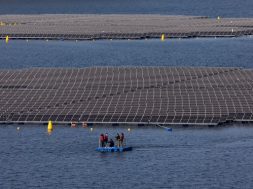
The decrease in import of solar panels and promotion of domestic manufacturing will only become feasible if the government announces favourable initiatives and schemes that provide a platform to develop local manufacturing infrastructure.
The Union Budget 2018 was extremely balanced and announced schemes in support to the domestic manufacturing sector. However the effect of the initiatives was dampened without any supporting policies and initiatives for domestic solar manufacturing in the country. The confusion regarding Goods and Services Tax (GST) caused delays in execution of projects, further affecting the development of the sector. Now, as the call for sustainable and renewable energy as alternate power source becomes urgent, there is a corresponding expedited requirement to propel the sector forward in India.
We hailed the implementation of safeguard duty, but without any robust anti-dumping policies in place, and safeguard duty applicable only on a few countries, it has been extremely easy to navigate around it. Most of the imports are now being routed via Thailand and Vietnam, at rates that are not sustainable for domestic manufacturers to match.
This makes the 2019 Interim Budget extremely crucial for the Solar Manufacturing Sector in India. The decrease in import of solar panels and promotion of domestic manufacturing will only become feasible if the government announces favourable initiatives and schemes that provide a platform to develop local manufacturing infrastructure. While Make in India is a great initiative, subsidies and schemes to make manufacturing of solar panels more lucrative, not only for manufacturers but also developers, will be welcome and will go a long way in re-affirming the government’s commitment to domestic solar manufacturers.
We expect the budget to lay down clear expectations from the solar sector as an important contributor to India Inc. and the socio-economic development of the country. The industry needs allocation of separate funds, along with subsidies that will aid in creating and upgrading the solar infrastructure in India. Energy storage, rooftop and floating solar are three important segments within the sector that should be part of the Interim Budget. Given the ambitious targets set for 2022, these segments are expected to be the frontrunner in India’s transition to renewable energy. It is also time to realise the potential the sector has for creation of employment. With its multi-layered infrastructure and requirement in both technical and non-technical roles, the solar sector can help become an important player in eradication of unemployment in the country.
A subcontinent in itself, India is known as a country of contrast. Areas like Ladakh, the islands of Andaman and Nicobar, or the Interiors of the Thar Desert have a difficult terrain or extreme climatic conditions that make solar a viable option, being self-sustained, and cost effective.
The request to transfer focus to Bureau of Indian Standards (BIS) certification as a selection criteria was welcomed by all stakeholders involved, furthers the sentiment on the compliance to norms related to raw material involved in developing solar modules. It is important for manufacturers to provide a successful ROI for investors, and should be addressed in the budget.
We are expecting the upcoming 2019 Interim Budget to be balanced, which looks at various aspects presenting challenges for domestic manufacturing to develop, and allows manufacturers to focus on extensive R&D and technological innovation, at par with the global best.
The author is Director at Waaree Energies













